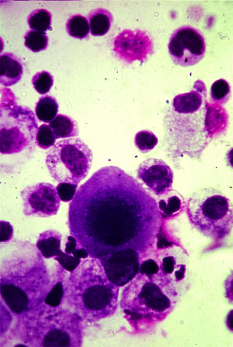Cancer question studied
 Researchers say that a debate over the role of radiotherapy in treating gastric and gastro-esophageal cancer has been resolved.
Researchers say that a debate over the role of radiotherapy in treating gastric and gastro-esophageal cancer has been resolved.
A major international clinical trial has found that radiotherapy does not improve survival outcomes in patients with operable forms of these cancers when compared to chemotherapy alone.
The trial demonstrated that adding radiotherapy to the standard treatment approach of surgery and chemotherapy does not extend survival, challenging longstanding practices, particularly in the USA.
“Our results now demonstrate that even when delivered optimally as preoperative therapy, radiotherapy does not improve survival outcomes compared to chemotherapy alone,” said the leader of the trial, Peter MacCallum Cancer Centre’s Professor Trevor Leong.
The results have been published in the New England Journal of Medicine.
The findings have the potential to influence clinical practices globally, particularly in regions where radiotherapy is standard in treating gastric and gastro-esophageal junction cancers.
These cancers affect more than 2,500 Australians each year.
All participants in the trial received chemotherapy both before and after surgery, while a portion of them were also treated with radiotherapy before surgery.
While radiotherapy did lead to a higher rate of pathological complete response - where the cancer becomes undetectable - it did not translate to long-term survival benefits.
“While the increase in pathological complete response is interesting and may warrant further investigation, in the longer term radiotherapy did not meaningfully improve cancer control or extend lives,” Leong added.
The study was a collaborative international effort that involved 70 medical centres across 15 countries.
The trial, which began in 2009, was conducted by organisations including the Australasian Gastro-Intestinal Trials Group (AGITG), the National Health and Medical Research Council Clinical Trials Centre, and the Trans-Tasman Radiation Oncology Group.
The latest academic study represents a significant shift in the understanding of treatment for operable gastric and gastro-esophageal junction cancers.
By removing the need for radiotherapy, patients may experience reduced treatment burdens, as they will no longer need to make multiple visits to specialist centres for radiotherapy.
The results of the study suggest that chemotherapy alone should be the preferred treatment for these cancers in many clinical scenarios, which may change existing treatment protocols.








 Print
Print